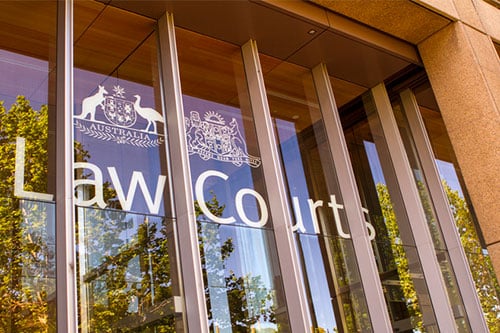
Proposed protections encroach too heavily on other anti-discrimination laws, the Law Council of Australia says

A “range of new and unorthodox protections” in the Religious Discrimination bill impinge on other well-recognised rights, the Law Council of Australia has said.
In its submission on the bill, the peak legal body in Australia said that while there are opportunities to consolidate and strengthen federal protections against discrimination based on religion, the proposed law may allow the prioritisation of freedom of religious expression over the right not to be discriminated against based on race, sexual orientation, disability, or age. Freedom of religious expression may also trump the right to healthcare under the bill, it said.
The Law Council said that the bill currently impinges on several Commonwealth laws.
“The model proposed in the Religious Discrimination Bill purports to be based upon the approach in other federal anti-discrimination laws,” said Arthur Moses SC, Law Council of Australia president. “But there are some significant and concerning departures from other anti-discrimination laws, such as the Sex Discrimination Act 1984 (Cth), Age Discrimination Act 2004 (Cth) and Disability Discrimination Act 1992 (Cth). Some of these provisions are concerning because, contrary to domestic and international law, they prioritise the protection of freedom of religious expression over other well-established rights.”
The submission highlights the legal profession’s several concerns regarding the bill, the council said. These include that the bill departs from the well-established test of “reasonableness” in indirect discrimination law for resolving tensions between rights in a way that has the least harmful effect in context, the Law Council said.
The bill also restricts “employer conduct rules,” which risks giving undue emphasis to employee rights to express their religion outside work at the expense of other rights. This could result in significant legal complexity and challenge for employers, it said.
If “health practitioner conduct rules are” diluted, there is a risk of increasing barriers to healthcare for people in regional areas or from low socio-economic backgrounds, the Law Council said. It also said that the bill could also make certain statements lawful when they otherwise would be unlawful because they are discriminatory.
Moses said that the right to not be discriminated based on religion and the right to express religion are important human rights that should be vigorously upheld. However, other human rights – including to not to be discriminated against based on race, sex, sexual orientation, disability, or age – should be afforded the same protections, he said.
"This is really a debate about what type of Australia do we want to be. The peaceful and harmonious diversity we have achieved in Australia is the envy of other nations. It should not be tinkered with by knee-jerk reaction legislation that may have unintended consequences. The bill, if enacted, would create significant new rights at the expense of other rights,” Moses said. “It is, plainly, a step too far to allow a dentist to refuse treatment on religious grounds. It is similarly excessive for a religious school to be able to exclude all contractors of contrary religious beliefs. Freedom of expression and religious freedom must accommodate tolerance and broader anti-discrimination principles.”